The Best Diarrhea Diet
Which foods should you include in your diarrhea diet and which ones should you avoid?
On the previous page we've discussed several myths and facts
regarding the treatment of diarrhea. Now let's consider some friends and enemies in the diarrhea diet.
There are a number of natural approaches to clear a bout of diarrhea, all of which contain one or more of three active ingredients: tannins, pectin and mucilage.
Tannins are chemicals that give some foods their astringency, that is, the ability to bind up and contract tissue.
They adhere to the protein layer of inflamed mucous membranes (i.e. an irritated intestine in the case of diarrhea) and cause it to thicken, which slows absorption of toxins and hinders secretion, helping the body to retain fluids.
To see how this helps in the diarrhea treatment, read about the causes
of
diarrhea.
Tannins are contained in agrimony, blackberry leaf or raspberry leaf tea. These teas also replenish lost fluids, which is important in preventing dehydration that may result from a prolonged bout of diarrhea. But be sure to include in your diarrhea diet those that contain real leaves rather than just flavoring.
Pectin is a type of soluble fibre that adds bulk to your stools and soothes your digestive tract. The "pectate" in the over-the-counter antidiarrheal medicine Kaopectate contains pectin.
Foods rich in pectin to be included in a sensible diarrhea diet are apples, bananas, beets, cabbage, carrots, citrus fruits, dried peas and okra.
Mucilage is another potent type of fibre. It soothes your digestive tract and adds bulk to your stools by absorbing water and swelling considerably.
Psyllium seeds are a rich source of this type of soluble fibre and ground psyllium seeds are easy to take dissolved in water or juice. If you have allergies or asthma, however, use this herb with caution.
These two types of fibre are amphoteric, that is, they firm up stools when they're too loose and soften them up when they're too hard, so they work well both in your diarrhea diet and for constipation relief.
Foods That Could Cause Diarrhea in Some
People
Certain foods can raise havoc with your bowels. If you have chronic diarrhea, try reducing or eliminating these foods from your diarrhea diet for a time and make a note of how you respond.
- Diary foods - Dairy produce contain a natural sugar called lactose, which many people have a hard time digesting because of lactose intolerance. However, many people with lactose intolerance can eat yogurt, which is naturally lower in lactose than other dairy foods and can actually be beneficial in the diarrhea treatment.
- Prepared foods - If you love to eat in restaurants, try to avoid ordering menu items that are typically prepared early in the day and reheated later on. Foods such as lasagne and quiche, for example, are more prone to bacterial contamination than foods that are made fresh and served hot.
- Fruit juice and honey - These contain a natural sugar called fructose, which, when eaten in large amounts, can move into the large intestine undigested. This can cause it to ferment and bring on unwanted gas and diarrhea.
- Sugarless gum and candy - Sorbitol, an artificial sweetener found in sugarless gums and candies, can be hard to digest. Like fructose, it can ferment in the intestine and cause diarrhea. Other artificial sweeteners - such as mannitol, xylitol, erythritol and D-tagatose - can cause problems, too. If you have frequent bouts of diarrhea and happen to eat or chew lots of "sugarless" or "sugar-free" items, try switching to the regular kind instead.
- Vitamin C - Although the health benefits of vitamin C are incredibly plentiful, and it can actually protect the digestive tract by boosting immunity against nasty bacteria, too much can cause diarrhea. Large doses of vitamin C - especially over 1,000 mg of dietary supplement taken regularly - may bring on gastrointestinal problems. If this happens to you, reduce the dose until the problem disappears. Many people don't have any problems even with higher doses of Vitamin C, so you have to adjust the intake to your particular situation.
- Fruit and vegetables - If you're not used to eating many fruits and vegetables and you suddenly start eating more than your digestive tract is accustomed to, it can sometimes lead to diarrhea: citrus fruits and beans are typically the culprits. So, cut back and introduce them gradually.
One very effective way to know which foods you need to eliminate from your diarrhea diet because they may affect you personally, is to go on an Elimination Diet, which can help if you suffer with diarrhea-predominant IBS or indeed any type of diarrhea.
Best Foods to Include in your Diarrhea Diet

Apples
Both the skin and the pulp of apples are rich in pectin, which is why apples and applesauce are one of the best foods for diarrhea.
Apple pectin also helps treat constipation because it acts as a gentle stool softener.
Tea
Tannins in tea bind the mucous membranes in the intestine and help the body absorb fluids while calming inflammation in the intestinal tract, slowing bowel movements.
One of the most astringent natural diarrhea treatment is conventional tea in traditional teabags.
The next time you have diarrhea, try a nice cup of tea - just plain, without any herbs, spices or milk added.

Bilberries and blueberries
These berries work well against diarrhea because they are rich in both tannins and pectin. Dried, not fresh, bilberries and blueberries are best.
And studies suggest that eating blueberries may reduce your risk of colon cancer to boot.
Carob
According to a 1989 study, published in the Journal of Pediatric Gastroenterology and Nutrition, involving 41 infants with bacterial or viral diarrhea, when given 1.5 g. (per kilogram of body weight) of carob powder the diarrhea was shortened to only 2 days.
Normalization of bowel movements, body temperature and weight, as well as cessation of vomiting, all occurred more quickly with carob.
Carob is also used as an alternative to cocoa. Have a look at some delicious recipes using carob powder.
Carrots
Cooked carrots seem to soothe the digestive tract and control diarrhea, and are one of the best foods to include in your diarrhea diet.
They also provide nutrients that are lost during an attack.
Interestingly, people who live in the Appalachian Mountains cook their beans with a small whole carrot - a natural way to reduce the sometimes unpleasant effects of fiber-rich foods, such as gas and bloating.
Garlic, onions and leeks
Eating foods known as prebiotics (not to be confused with pro-biotics) - indigestible food elements that stimulate the growth of "good" bacteria in the digestive tract - can be helpful in preventing diarrhea.
Natural sources of prebiotics include garlic, onions and leeks (which are also antiseptic).
Eating lots of these foods can boost the immune system and ward off diarrhea-causing bacteria. And according to studies in India, garlic's link to good bacteria in the intestines improves digestion and enhances absorption of minerals, a helpful bonus during and after a nasty case of diarrhea.
Pomegranate
The seeds of pomegranate are full of tart yet sweet astringent juice that helps to bind and dry up your bowels.
The husk, rarely consumed directly, may have even more binding tannins; it's sometimes blended into the pomegranate juice, so sipping this juice is a good option.
White rice
Foods such as white rice and those made with white flour are lacking in
fiber and generally tend to constipate people who eat them a lot, so
the time to eat them is when you're having a bout of diarrhea.

Bananas
A ripe banana is often a baby's first food because it's bland and easy to digest, which also makes it a perfect snack on your diarrhea diet.
Bananas also have plenty of potassium, which can be depleted by diarrhea.
Yogurt
Yogurt can be a very useful food to include in your diarrhea diet. It contains active bacteria, such as L. thermophilus and L. bulgaricus, which help prevent and stop diarrhea.
There have been several studies showing yogurt's effectiveness in treating several digestive
disorders.
Please, now choose one of the following articles to read more on diarrhea treatment and also how you can
find out what food causes your symptoms.
RELATED PAGES:
Diarrhea Treatment - deals with some of the myths and facts related to the treatment of diarrhea.
IBS with Diarrhea - The Elimination Diet
References:
1) Carper, J., (1993) Food Your Miracle Medicine: How Food Can Prevent and Treat Over 100 Symptoms and Problems, New York: HarperCollins Publishers Inc.
2) Duke, J.A., Ph.D.,(2008) The Green Pharmacy Guide to Healing Foods: Proven Natural Remedies to Treat and Prevent More Than 80 Common Health Concerns, New York; Rodale.
3) Wait, M., (2007) Food Cures: Breakthrough Nutritional Prescriptions for Everything from Colds to Cancer, New York: The Reader's Digest Association, Inc.
Back to Foods' Healing Power
Homepage from The Best Diarrhea Diet
Search for information on this site:
Receive Discover the Power of Healing Foods! Free
Newsletter
Products that can help during a bout of diarrhea
Extra Strong Garlic
Supplement

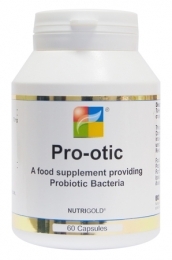
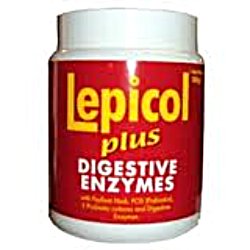
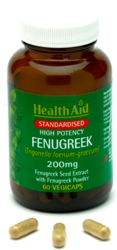
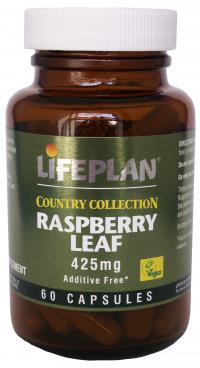
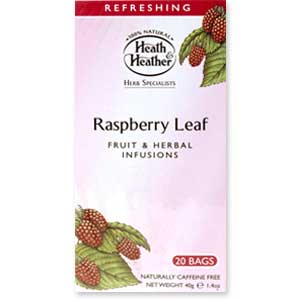
New! Comments
Have your say about what you just read! Leave me a comment in the box below.